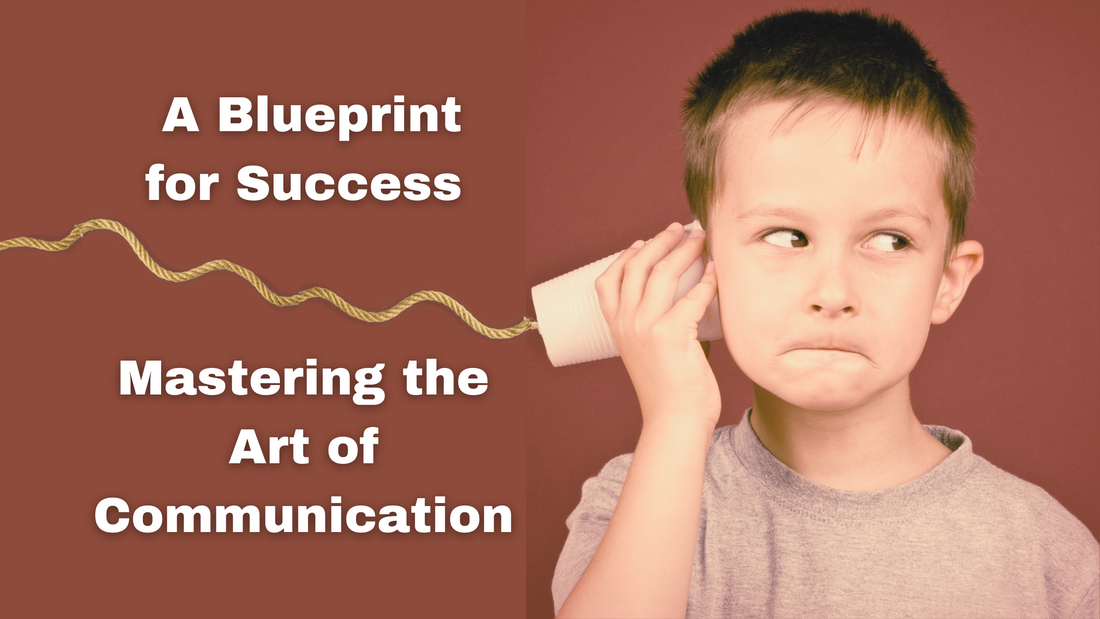
Mastering the Art of Communication: A Blueprint for Success
Marc BarthelemyShare
Communication isn’t just about talking. It’s about making connections, building trust, and expressing your ideas in a way that truly resonates. Whether you're leading a team, navigating a relationship, or simply striving to make yourself heard, mastering communication is essential. Let’s explore how you can develop these skills to enhance your personal and professional life.
1. The Foundations of Effective Communication
The best communicators don’t just talk—they listen, observe, and adapt. Here are the pillars of effective communication:
- Active Listening: Communication starts with truly hearing what others have to say. Give your full attention, make eye contact, and respond thoughtfully.
- Clarity and Conciseness: Simplicity is powerful. Avoid unnecessary jargon and ensure your message is clear.
- Non-Verbal Cues: A majority of communication is non-verbal. Pay attention to body language, tone, and facial expressions to add depth to your conversations.
- Empathy: Show that you care by understanding the emotions and perspectives of others.
2. Practical Steps to Improve Your Skills
Mastering communication doesn’t happen overnight—it’s a journey of continuous improvement. Here are actionable tips:
- Practice Reflective Listening: Paraphrase what others say to ensure you understand them correctly.
- Ask Questions: Engage by asking open-ended questions that invite meaningful dialogue.
- Mind Your Delivery: Speak with confidence, maintain an even tone, and pace your speech for clarity.
- Be Present: Minimize distractions and show your commitment to the conversation.
3. Overcoming Common Barriers
Communication challenges are inevitable. Here’s how to navigate them:
- Fear of Public Speaking: Practice in smaller settings and build confidence through preparation. Visualize success before stepping into the spotlight.
- Cultural Differences: Approach every conversation with openness and curiosity. Respect and acknowledge diverse perspectives.
- Technological Distractions: Create boundaries with technology by silencing notifications and focusing on face-to-face interactions when possible.
4. The Role of Feedback in Communication
Feedback is a two-way street. Here’s how to make it effective:
- Giving Feedback: Be constructive and specific. Frame criticisms as opportunities for growth.
- Receiving Feedback: Listen without defensiveness and use it as a tool for improvement.
5. Building a Habit of Excellent Communication
To become a great communicator, consistency is key.
- Start Small: Begin with mindful conversations in your daily life.
- Self-Awareness: Reflect on your own communication habits. Are you dominating the conversation? Interrupting? Missing non-verbal cues?
- Continuous Learning: Invest in books, workshops, or online courses to refine your skills further.
Conclusion
Great communication is more than just words—it’s about connection, clarity, and intention. By honing your skills in listening, empathy, and overcoming barriers, you can transform the way you interact with the world. Take the first step today: commit to one new habit that will bring you closer to becoming an exceptional communicator.
Your voice matters. It’s time to use it with purpose.









